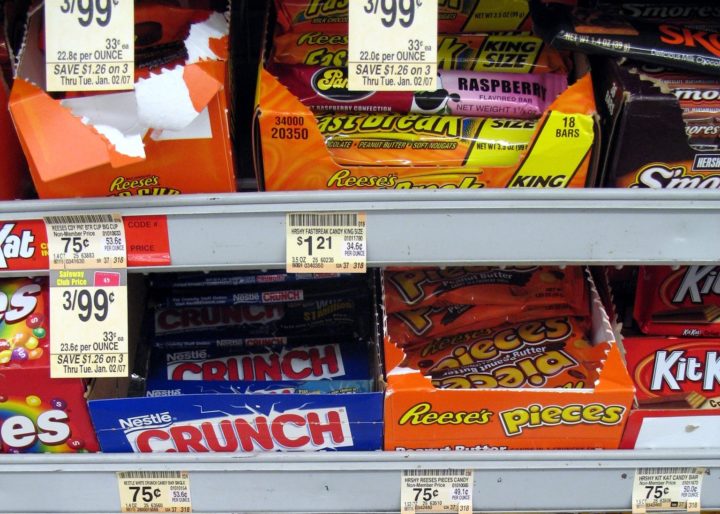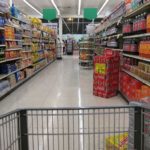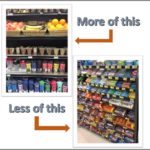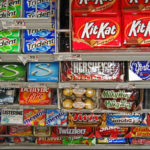
Want to treat yourself while you’re checking out at the grocery store? Want to reward your kids with something sweet for behaving themselves during your shopping trip?
If you’re in Berkeley, California, you’ll need to substitute dried fruit, water and granola bars for the traditional candy and chips – because a much-publicized “healthy checkout” proposal is now law.
The Berkeley City Council made headlines last month when it introduced the measure. Now that measure is set to be implemented, after council members gave it the official stamp of approval following a second reading last night.
“Cheap, ready-to-eat foods high in salt, saturated fat, and added sugars dominate checkout aisles, where shoppers are more likely to make impulse purchases and where parents struggle with their children over demands to buy treats at the end of a shopping trip,” the ordinance reads. So approximately two dozen stores that sell groceries within the city limits – including Safeway, Whole Foods, CVS, Walgreens and a handful of locally-owned businesses – will be required to meet a strict set of requirements for any items sold in checkout displays.
Soda is out, and only drinks with no added sugars are in. Candy is out, and fruit, nuts and seeds are in. Sugary gum is out, and yogurt, whole wheat crackers and hummus are in.
The ordinance is now the first in the country to mandate healthy checkouts by law. But it’s far from the first effort to replace checkout junk food with better-for-you options.
Lidl, which has since begun opening stores in the U.S., was the first to ban checkout candy in all of its stores in the UK back in 2014. Several other British chains soon followed suit. American retailers have stepped more gingerly into this area. Some individual stores have banned unhealthy checkout items, and some larger chains like CVS, ALDI and Target have cut back on the junk food, but have stopped short of banning unhealthy options altogether.
Now, if they do business in Berkeley, they’ll have to. The law is set to take effect next March, with enforcement beginning in early 2022, after which time unhealthy foods can be sold elsewhere in the store, just not in the checkout lanes anymore.
“The aim of placing food and beverages at checkout is to induce unplanned purchases,” Berkeley’s ordinance reads. “The placement of snacks near the register increases the likelihood that people purchase those foods.”
The measure is sure to intensify the debate over whether it should be the government’s role to limit shoppers’ options, or if retailers and shoppers should be free to make their own decisions. Berkeley proudly notes that it was the first city in the country to impose a tax on sugary drinks, which other municipalities have since adopted. California state lawmakers went one step further last year, proposing a ban on soda coupons and promotions. All of these measures are designed to discourage unhealthy purchases, without banning them outright – you can still buy junk food or soda at the store if you’d like, but you may have to go out of your way to find it, or be willing to pay full price with additional tax.
Proponents say it’s less about limiting your choices than it is about limiting other people’s choices. Even if you don’t want the government telling you what you can and can’t buy, telling other people what they can and can’t buy could benefit society at large by helping to lower health care costs and reduce the burden on our health care system.
But there’s a flip side. Reducing health care costs could come at the expense of increasing your groceries’ cost. Retailers and manufacturers fill their checkout displays with candy, soda and other tempting treats for a reason – they sell. And, on a cost per ounce basis, they’re pretty pricey. If you’re going to buy a drink or a snack, you’re much better off buying the full-sized version in the aisles, especially if it’s on sale or you have a coupon. Brands make a much bigger profit on single-serve items sold to impulse buyers, who end up essentially subsidizing your purchase of the cheaper, full-sized items. If stores can’t sell single-serve items with huge markups, they may be forced to raise prices on everything else.
So when it comes to high-minded ideas that benefit everyone, it seems you can’t have your cake and eat it too. And pretty soon, if you visit a grocery checkout in Berkeley, California, you won’t be able to have your candy bar and eat it, either.
Image source: sfllaw










